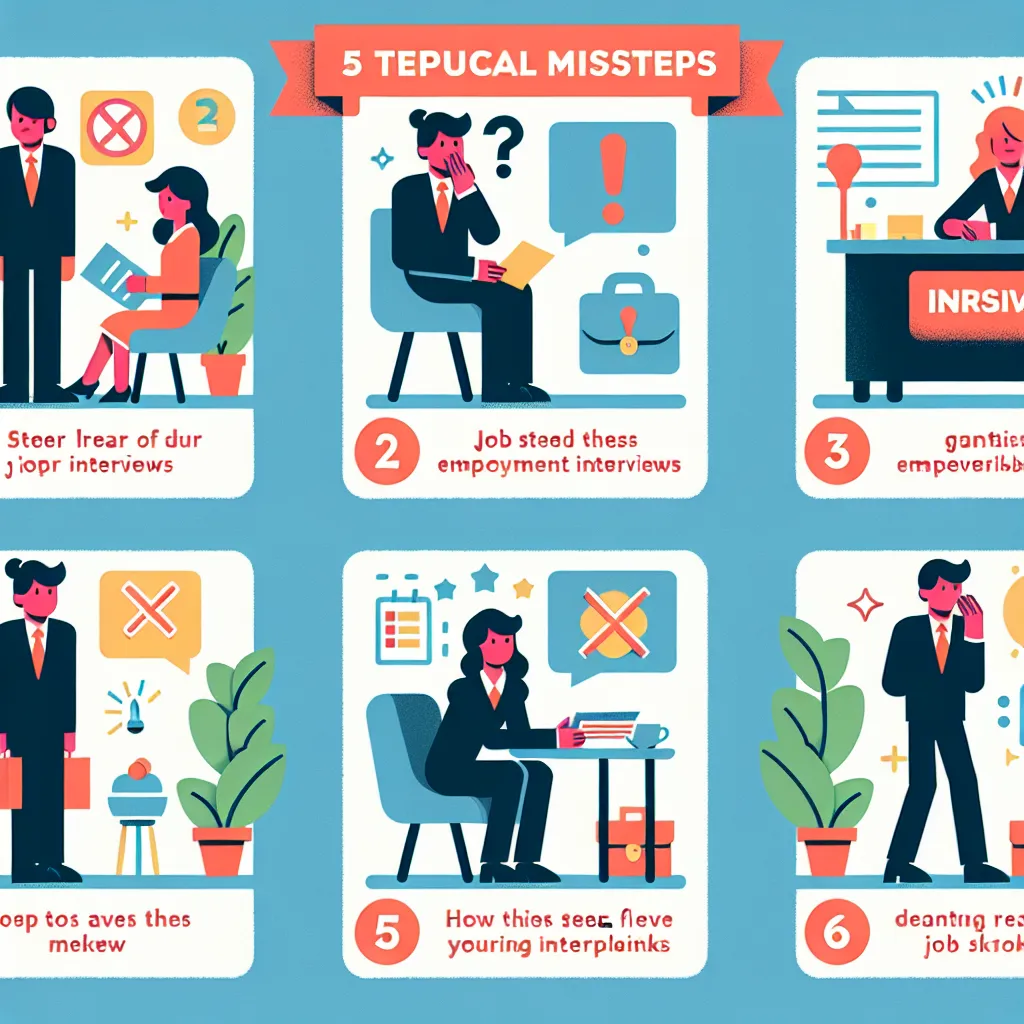Are you preparing for a job interview and worried about facing a challenging interviewer? Don’t fret! This comprehensive guide will equip you with the tools and techniques to navigate even the toughest interview situations with confidence and professionalism.
Understanding the Difficult Interviewer
Before we dive into strategies, it’s crucial to understand what constitutes a difficult interviewer. These individuals may exhibit various behaviors that can make the interview process uncomfortable or stressful for candidates.
Common Types of Difficult Interviewers
- The Intimidator: Uses aggressive tactics to see how you handle pressure.
- The Silent Type: Provides minimal feedback, leaving long pauses after your responses.
- The Distracted Interviewer: Seems uninterested or preoccupied during the interview.
- The Interrogator: Asks rapid-fire questions without giving you time to think.
- The Devil’s Advocate: Challenges everything you say to test your conviction.
Understanding these types can help you prepare mentally and strategically for various interview scenarios.
 Types of Difficult Interviewers
Types of Difficult Interviewers
Strategies for Handling a Difficult Interviewer
Now that we’ve identified potential challenges, let’s explore effective strategies to handle difficult interviewers.
1. Stay Calm and Composed
Maintaining your composure is crucial when facing a difficult interviewer. Here’s how:
- Take deep breaths to calm your nerves.
- Maintain good posture and eye contact.
- Speak slowly and clearly, even if the interviewer is rushing you.
Remember, your ability to stay calm under pressure is a valuable skill that many employers seek.
2. Be Prepared
Thorough preparation is your best defense against any type of interviewer:
- Research the company and role extensively.
- Practice common interview questions and prepare concise, impactful answers.
- Have examples ready to illustrate your skills and experiences.
For more tips on interview preparation, check out our guide on how to handle tricky interview questions.
3. Use the STAR Method
When answering behavioral questions, use the STAR method (Situation, Task, Action, Result) to provide structured, comprehensive responses:
- Situation: Briefly describe the context.
- Task: Explain your responsibility in that situation.
- Action: Describe the steps you took.
- Result: Share the outcomes of your actions.
This method helps you stay focused and provide relevant information, even if the interviewer is being difficult.
4. Ask for Clarification
If you’re unsure about a question or feel that the interviewer is being vague, don’t hesitate to ask for clarification:
- “Could you please provide more context for that question?”
- “I want to ensure I understand correctly. Are you asking about…?”
This shows that you’re engaged and committed to providing accurate, relevant responses.
5. Redirect Negative Questions
If faced with overly negative or inappropriate questions, try to redirect the conversation:
- Acknowledge the question without dwelling on negativity.
- Pivot to highlight your positive qualities or experiences.
For example, if asked about a weakness, briefly mention it but focus on how you’re actively working to improve.
6. Demonstrate Emotional Intelligence
Showcasing your emotional intelligence can be particularly effective with difficult interviewers:
- Practice active listening.
- Show empathy and understanding.
- Respond thoughtfully, not reactively.
These skills are valuable in any workplace and can impress even the toughest interviewer.
Handling Specific Difficult Situations
Let’s address some common challenging scenarios you might encounter:
The Silent Treatment
If faced with an interviewer who provides minimal feedback:
- Continue to answer questions thoroughly and enthusiastically.
- Use their silence as an opportunity to elaborate on your points.
- Ask thoughtful questions about the role and company to engage them.
Rapid-Fire Questions
When bombarded with quick successive questions:
- Take a brief pause before answering to collect your thoughts.
- It’s okay to say, “That’s an interesting question. Let me think about that for a moment.”
- Prioritize quality over speed in your responses.
Intimidation Tactics
If an interviewer uses aggressive or intimidating behavior:
- Remain professional and courteous at all times.
- Stand your ground politely if you feel a question is inappropriate.
- Use confident body language to appear unfazed.
For more insights on handling difficult situations, visit our article on how to answer “How do you handle difficult situations?” in English.
Common Mistakes to Avoid
When dealing with a difficult interviewer, be careful not to:
- Lose your temper or become visibly frustrated.
- Speak negatively about previous employers or experiences.
- Rush through answers without thinking them through.
- Become defensive or argumentative.
- Lie or exaggerate your qualifications.
Remember, how you handle challenging situations in an interview can be just as important as the content of your answers.
 Common Interview Mistakes
Common Interview Mistakes
Follow-Up Questions and Suggested Responses
Here are some follow-up questions a difficult interviewer might ask, along with suggested responses:
-
Q: “Why should we hire you over other candidates?”
A: “While I can’t speak for other candidates, I can confidently say that my combination of [specific skills], [relevant experience], and [unique qualities] make me well-suited for this role. I’m particularly excited about [aspect of the job or company], and I believe I can contribute significantly to [specific goal or project].” -
Q: “How do you handle criticism?”
A: “I view constructive criticism as an opportunity for growth. For example, [brief situation where you received criticism], I listened carefully, asked for specific feedback, and implemented changes that ultimately improved my performance.” -
Q: “Describe a time when you failed at something important.”
A: “In [specific project or situation], I [describe the failure briefly]. However, I learned [key lesson] from this experience. Since then, I’ve [describe how you’ve applied this lesson], which has helped me [positive outcome].” -
Q: “How do you deal with conflict in the workplace?”
A: “I believe in addressing conflicts promptly and professionally. For instance, [describe a workplace conflict situation briefly]. I approached the situation by [steps taken to resolve], which resulted in [positive outcome]. This experience reinforced the importance of open communication and finding common ground.” -
Q: “What’s your biggest weakness?”
A: “I sometimes struggle with [specific weakness that isn’t critical to the job]. However, I’ve been actively working on this by [specific steps you’re taking]. For example, [brief example of improvement]. I believe in continuous self-improvement and am always looking for ways to enhance my skills and address my weaknesses.”
For more guidance on answering tricky questions, explore our article on how to handle stress interview questions.
Conclusion
Handling a difficult interviewer can be challenging, but with the right preparation and mindset, you can turn it into an opportunity to showcase your skills, resilience, and professionalism. Remember to stay calm, be prepared, and use these strategies to navigate even the toughest interview situations. By doing so, you’ll not only survive the interview but potentially impress the interviewer with your ability to handle pressure and challenging scenarios.
Do you have any experiences with difficult interviewers or additional tips to share? We’d love to hear from you in the comments below. And for more interview tips and strategies, check out our other articles on mastering the art of job interviews.




